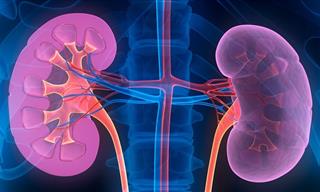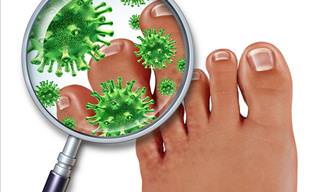However, there might be some relief in this regard. The World Health Organization (WHO) recently urged people not to fear catching the novel coronavirus from food. "People should not fear food, food packaging or delivery of food," the World Health Organization's head of emergency program Mike Ryan told in a briefing.
Furthermore, the U.S. Food and Drug Administration and Agriculture Department said in a joint statement, "there is no evidence that people can contract COVID-19 from food or from food packaging."
These announcements came after two cities in China found traces of the novel coronavirus in cargoes of imported frozen food. The authorities claimed that they screened people who had been in contact with the contaminated products, along with their relatives, and all the tests came back negative. Moreover, the WHO insisted that the risk of the virus entering the food chain is minimal. They said that there were no examples of the respiratory disease being transmitted through food.
So, does that mean we need not panic about the coronavirus spreading through food anymore?
Chances of the coronavirus transmitting through food are slim
Cold-storage facilities and meat processing plants are indeed perfect environments for this dangerous pathogen to spread. This is because the virus flourishes in cold and dry environments. In fact, viruses can survive up to two years at temperatures of minus 20 degrees Celsius (-4°F). That being said, there has been no evidence as of yet that the novel coronavirus can spread through food, and experts remain doubtful that it’s a serious threat. Also, there have been no examples so far that the coronavirus can spread via frozen food either.
In theory, the infection can spread through frozen food items. However, experts say that it’s unlikely to happen in reality because so many steps would need to be involved for that to happen.
First of all, the virus would need to survive freezing and then defrosting. Then it would need to get onto someone’s hands and from there move into their nose or mouth, and still remain alive. It might be possible for the virus to transmit this way, but the chances for that happening frequently seem rather unlikely.
“The number of virus particles coming out a person’s mouth or nose is far greater than a few virus particles remaining on frozen foods, somebody touching it and then spreading it,” T. Jacob John, a retired virologist at Christian Medical College, tells Reuters. “Among all the risks, I think these are very low risks.”
Let’s be cautious without going overboard
It is not unusual for viruses, bacteria, and parasites to be transferred through food that has been contaminated. However, for now, it seems as if we need not fear food and packaging overtly for the coronavirus. Experts are now confidently saying that people are unlikely to contract COVID-19 from food or food packaging since coronaviruses require a living host to multiply. They become gradually weaker outside the body and eventually lose the ability to actively infect.
The Centers for Disease Control and Prevention (CDC), too, had claimed in June this year that the risk of infection from food products or bags is “thought to be very low.”
Even if the virus has somehow made its way to your food, it can still be killed.
 "If the virus is actually in food -- and we have no examples of where this virus has been transmitted as a food-borne, whereas someone has consumed a food product -- the viruses can be killed, like other viruses as well, if the meat is cooked,” says Maria Van Kerkhove, the WHO's COVID-19 technical lead.
"If the virus is actually in food -- and we have no examples of where this virus has been transmitted as a food-borne, whereas someone has consumed a food product -- the viruses can be killed, like other viruses as well, if the meat is cooked,” says Maria Van Kerkhove, the WHO's COVID-19 technical lead.Thus, let’s not get too panicky when it comes to food but let’s not become too laidback, either. We must be cautious about the current situation without going overboard and listen to what the experts say. Let’s now hope that the threat from this virus is tackled soon and we can resume our normal lifestyle in the near future.
Please share this post with your friends and family!
 Go to BabaMail
Go to BabaMail





 "If the virus is actually in food -- and we have no examples of where this virus has been transmitted as a food-borne, whereas someone has consumed a food product -- the viruses can be killed, like other viruses as well, if the meat is cooked,” says Maria Van Kerkhove, the WHO's COVID-19 technical lead.
"If the virus is actually in food -- and we have no examples of where this virus has been transmitted as a food-borne, whereas someone has consumed a food product -- the viruses can be killed, like other viruses as well, if the meat is cooked,” says Maria Van Kerkhove, the WHO's COVID-19 technical lead.

















































